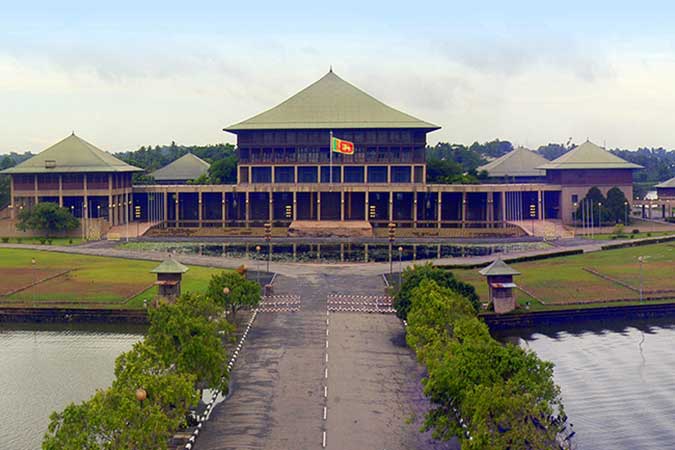FEATURES

by Dr D.Chandraratna
We often have heard that democracy is the truest form of politics. It is also the form of government superior to any other political rule. Conversely it is also argued that democracy as a social movement can deteriorate to tyranny and destruction if it is not guarded from those pretending to be democratic. That may perhaps be the reason why the term democracy is labelled the most promiscuous word in the world of public affairs because it is adaptable and thus illicitly shared by many others. Even the Communists claim to be democratic; but they have no pretences to be democratic and they are right to the extent that the majority are willing to be ruled by some other form. The general sentiment is that democracy is a way of life and the spirit of democracy is more important than all the institutional arrangements.
‘The new Anti-Terrorism Act (ATA) proposed by the Sri Lankan Government, designed to replace the existing Prevention of Terrorism Act (PTA) of 1979, threatens to exacerbate restrictions on the right to assembly and gravely curtail freedom of expression and press freedom’, the International Federation of Journalists (IFJ) said in a statement. Along with many other media groups numerous editorials of The Island urged the authorities to reconsider. In particular they were condemning the excessive powers given to the president to invoke proscriptive orders, restricting organisations labelled ‘terrorist’, the power to order curfews, declare places ‘prohibited’, instate rehabilitation programmes, and obtain restriction orders that prohibit movement and activities, all conducted outside of the court system and organisations which are deemed critical of the Sri Lankan government. The state was coming heavy on individual liberties.
Sri Lankan Parliamentarians, some of whom, according to the justice minister, have not read and understood the Bill, are voting on party affiliations on the pretext of safeguarding the security of the nation. Rhetorical phrases such as ‘security and sovereignty of the nation’ can easily be misleading and hence should not be agreed to blindly. It is often stated that such phrases are of limited value when it comes to complicated issues, other than to cover up the weaknesses of governments. ‘Consent by the people’ must be taken cautiously for it is limited to yes or no response to a complicated and pre-digested document. Representatives of the people ought to have the wisdom to comprehend those complicated decisions of actual governments and never be moved by meaningless phrases. That is the reason for Burke to remind us that an ounce of law is worth a tonne of rhetoric if a court in a democracy will recognise individual liberties against the state itself. Any Bill restricting the freedom of expression and dissent is dangerous.
The final point is whether sri Lankans have often misunderstood democracy. There are the naïve democrats who believe that democracy is, what the crowd wants. Political meetings in Sri Lanka are intoxicating rather than educating, both literally and metaphorically. Pleasing the crowd through clever oratory is worth a tonne than the manifestoes. Such populist dramas are the great animating myths which have taken some nations to ruin. They forget that the first business of government is to govern which may at times, call for the deliberate endurance of unpopularity. Winston Churchill at one of the Washington Press Conferences has said, ‘The politician who cannot stand unpopularity is not worth his salt’. Government alone can establish priorities and legislate actual policies and democracy can only advise and consent by saying yes and no to a simple question periodically through elections and referenda. The representatives must be politicians of intellect and, even occasionally if they do not think of the interests of government, ‘they might survive but it is unlikely that the republic would’. Our contemporary experience is a salutary lesson.
